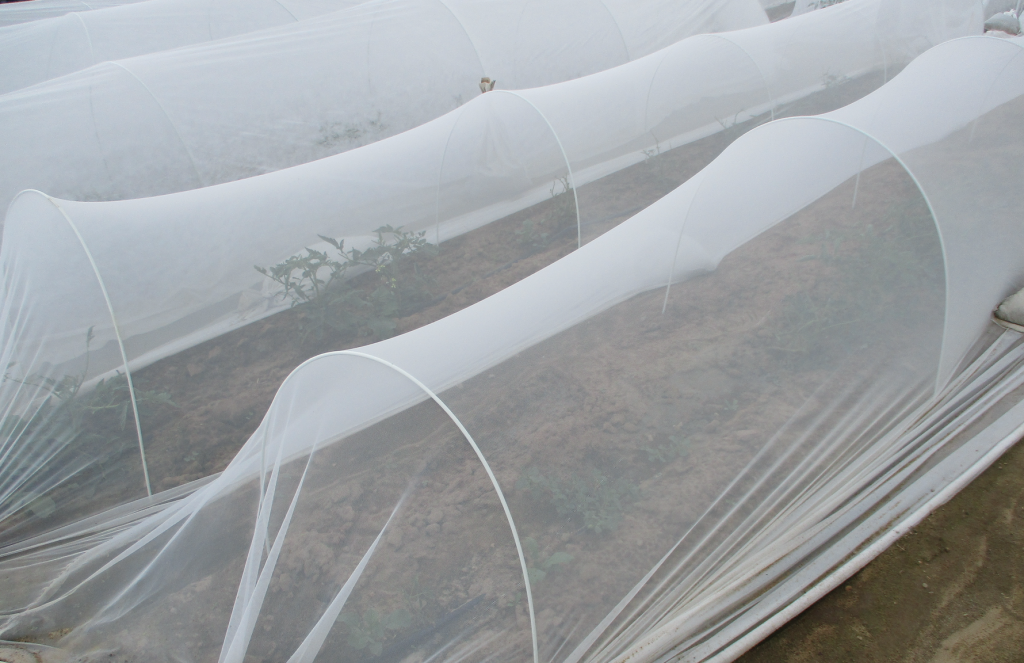
According to Alabama Extension, the demand for organic crop production has experienced an upward trajectory in recent years. This increasing demand means there is a need for more farmers to produce organic vegetables at a reasonable cost, while also being environmentally sustainable.
For these producers, insect pest management is one of the aspects where they must watch their costs and consider the environmental impact of the management strategies they implement. Luckily, there are several integrated pest management (IPM) practices that can help producers do both.
Pest Exclusion Systems
Vegetable production in the Southeast already comes with risks, as insect pests threaten crops from seedling to harvest. According to surveys of specialty crop producers, potential crop losses from pest feeding average 55%. Crop contamination from insect excrement and other factors can also affect farm profits. These are referred to as the yield-limiting and yield-reducing factors, which all depend on how the crop is managed.
IPM practices, such as pest exclusion, can help with these factors.
Pest exclusion is based on the practice of physically blocking insects from reaching their host plants and is often overlooked by producers. Moths and large pests, such as stink bugs or leaffooted bugs, can be good targets of a well-designed pest exclusion system, especially on small acres with intensive vegetable production. There are two types of pest exclusion systems; temporary and permanent.
- Temporary, or time-limited, systems are suitable for early season pest management to protect seedlings.
- Permanent pest exclusion systems are a more intense use of pest exclusion fabric that provides season-long crop protection in high tunnels. This is called the high tunnel pest exclusion (HTPE) system, which is being intensively evaluated at 14 farm locations across Alabama.
There are numerous benefits that a pest exclusion system can offer in an organic vegetable production.
- Short-term or season-long pest reduction.
- Variable cost depending on material and design of the system.
- Minimal training for implementation.
- Growth and season extension from use of insect barrier fabric.
- Overall reduction in the use of biorational insecticides with increase in natural enemy activity.
It’s important to note that not all crops and varieties may lend themselves to pest exclusion systems. Contact the Alabama Extension commercial horticulture regional agent in your area before making a major purchase decision. It is recommended that pest exclusion systems be integrated with the use of insect monitoring systems or traps and natural enemies for practicing true IPM.









